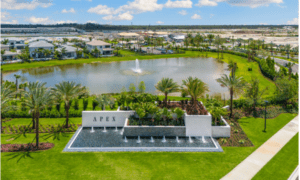When it comes to commercial real estate (CRE), there are many factors to consider before investing. Whether a first-time investor or an experienced real estate professional, you must know the pitfalls and opportunities of owning a CRE property. This essay will discuss some key considerations when viewing a CRE property.
Location:
One of the most important factors to consider when viewing a CRE property is its location. The location of a property can have a significant impact on its potential for success. For example, a property located in a high-traffic area with good visibility is more likely to attract tenants and generate revenue than a property located in a less desirable location. Additionally, a property in a high-growth area is more likely to appreciate over time than a property in a stagnant place.
Property Condition:
Another critical factor to consider when viewing a CRE property is its condition. A property in good condition is more likely to attract tenants and generate revenue than one in poor condition. Additionally, a property in good condition is more likely to appreciate over time than one in poor condition. As a potential investor, it is important to thoroughly inspect the property and consider any necessary repairs or renovations that may be needed.
Tenant Mix:
When viewing a CRE property, consider the tenant mix. The tenant mix refers to the types of businesses or organizations that occupy the property. A property with a diverse tenant mix is more likely to generate consistent revenue and have a lower risk of vacancy than a property with a single tenant. Additionally, a property with a tenant mix of well-established and reputable businesses is more likely to generate a steady stream of revenue and have a lower risk of vacancy than a property with a tenant mix of unknown or unproven companies.
Zoning and Restrictions:
Another vital factor to consider when viewing a CRE property is the zoning and restrictions in place. Zoning and regulations can significantly impact a property’s potential use and value. For example, a property in a zone that allows for various services is likelier to have a higher potential for success than one with strict restrictions. Additionally, check if the property is in a protected area with specific limits on the building height, type of business, and other factors that could limit the property’s potential.
Future Development:
When viewing a CRE property, consider the potential for future development in the surrounding area. Properties located in areas with a high potential for future development are more likely to appreciate over time than those without much potential for future growth. Additionally, check the local government’s plans for the site, as the development plans can significantly affect the property’s future value.
Return on Investment:
Finally, consider the potential return on investment (ROI) when viewing a CRE property. The ROI is the amount you can expect to make on your investment. A property with a high ROI is more likely to be a good investment than a low one. Factors that can affect the ROI include the property’s location, condition, tenant mix, and potential for future development.
When viewing a CRE property, consider various factors to determine its potential for success. Location, property condition, tenant mix, zoning and restrictions, future development, and return on investment are all factors to consider. By taking the time to evaluate these factors thoroughly,
write more
you can make a more informed decision about whether or not to invest in a particular property. However, it is also important to remember that no property is perfect, and there may be trade-offs to consider. For example, a property with a high ROI may also have a higher risk of vacancy, or a property in a high-growth area may also come with a higher price tag.
It is essential to work with a professional real estate agent or a real estate attorney, who can help guide you through viewing and purchasing a CRE property. They can provide valuable insights and advice on how to navigate the market, as well as help you understand the legal and financial aspects of the transaction. Additionally, they can assist you in conducting due diligence, which includes researching the property, reviewing the lease agreements, and evaluating the property’s financial statements.
Furthermore, understand your investment goals and risk tolerance clearly. Are you looking for a long-term investment or a quick flip? Are you willing to take on a higher level of risk for a potentially higher return? Answering these questions will help you to focus on properties that align with your goals and risk tolerance and make more informed decisions.
In conclusion, viewing a commercial real estate property is a complex process that requires careful consideration of various factors. By keeping an eye out for location, property condition, tenant mix, zoning and restrictions, future development, return on investment, and working with a professional, you can better evaluate the potential of a property and make a more informed decision about whether or not to invest.



































